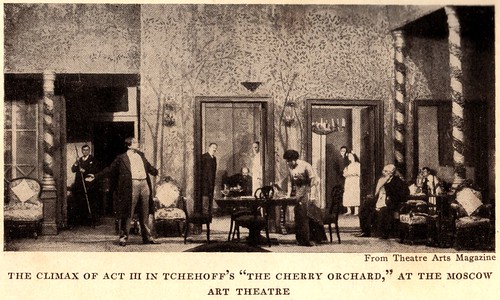100 years of spring brooks
"Haru no ogawa" (
Wikipedia has a good summary. Here's the original first verse, from the 1912 version published in official Education Department materials for fourth-graders:
Haru no ogawa wa/ sara-sara nagaru
Kishi no sumire ya/ renge no hana ni
Nioi medetaku/ iro utsukushiku
Sake yo sake yo to/ sasayaku gotoku
Smoothly, smoothly flows the brook/ now that spring has come again.
To the violets on the bank/ and the lotus blossoms too,
"Let your fragrance joyful be/ and your colors beautiful:
"Bloom ye, bloom!" -- Thus the brook/ seems to whisper to them all.
Note the nagaru, a classical verb form that even in 1912 was long gone from spoken language, and the gotoku, an adverbial form of gotoshi ("like, similar to") to which the same applies.
In 1942, poet HAYASHI Ryūha rewrote it in more natural spoken language, for materials aimed at third-graders:
Haru no ogawa wa/ sara-sara iku yo
Kishi no sumire ya/ renge no hana ni
Sugata yasashiku/ iro utsukushiku
Saiteiru ne to, sasayakinagara
Smoothly, smoothly goes the brook/ now that spring has come again.
To the violets on the bank/ and the lotus blossoms too,
"How your form is kind and gentle/ and your colors beautiful,
"As you bloom!" says the brook/ in a whisper as it goes.
You can see that he's dropped nagaru and gotoku. It looks like medetaku was deemed too stuffy, too, and for some reason Hayashi changed the brook's line from an order to an observation.
This was revised again in 1947:
Haru no ogawa wa/ sara-sara iku yo
Kishi no sumire ya/ renge no hana ni
Sugata yasashiku/ iro utsukushiku
Sake yo sake yo to/ sasayakinagara
Smoothly, smoothly goes the brook/ now that spring has come again.
To the violets on the bank/ and the lotus blossoms too,
"Let your form be kind and gentle/ and your colors beautiful:
"Bloom ye, bloom!" says the brook/ in a whisper as it goes.
The only change here was the restoration of the imperative form in the last line. Presumably they decided that whatever was gained by making the brook less pushy wasn't worth the inconsistency it caused with the second verse, which had started with Asobe asobe to ("Play ye, play!") since 1912.
Japan has a large body of "official folk music" like this: songs that everyone knows, that have evolved over the years, but which have relatively recent origins—specifically, the mid-to-late-Meiji push to get European harmony into Japanese schools. It took hold and has held up surprisingly well, when you consider that it was an œuvre largely produced by contractors to government specifications.
![[No-sword]](http://no-sword.jp/images/site/no-sword_banner.jpg)







